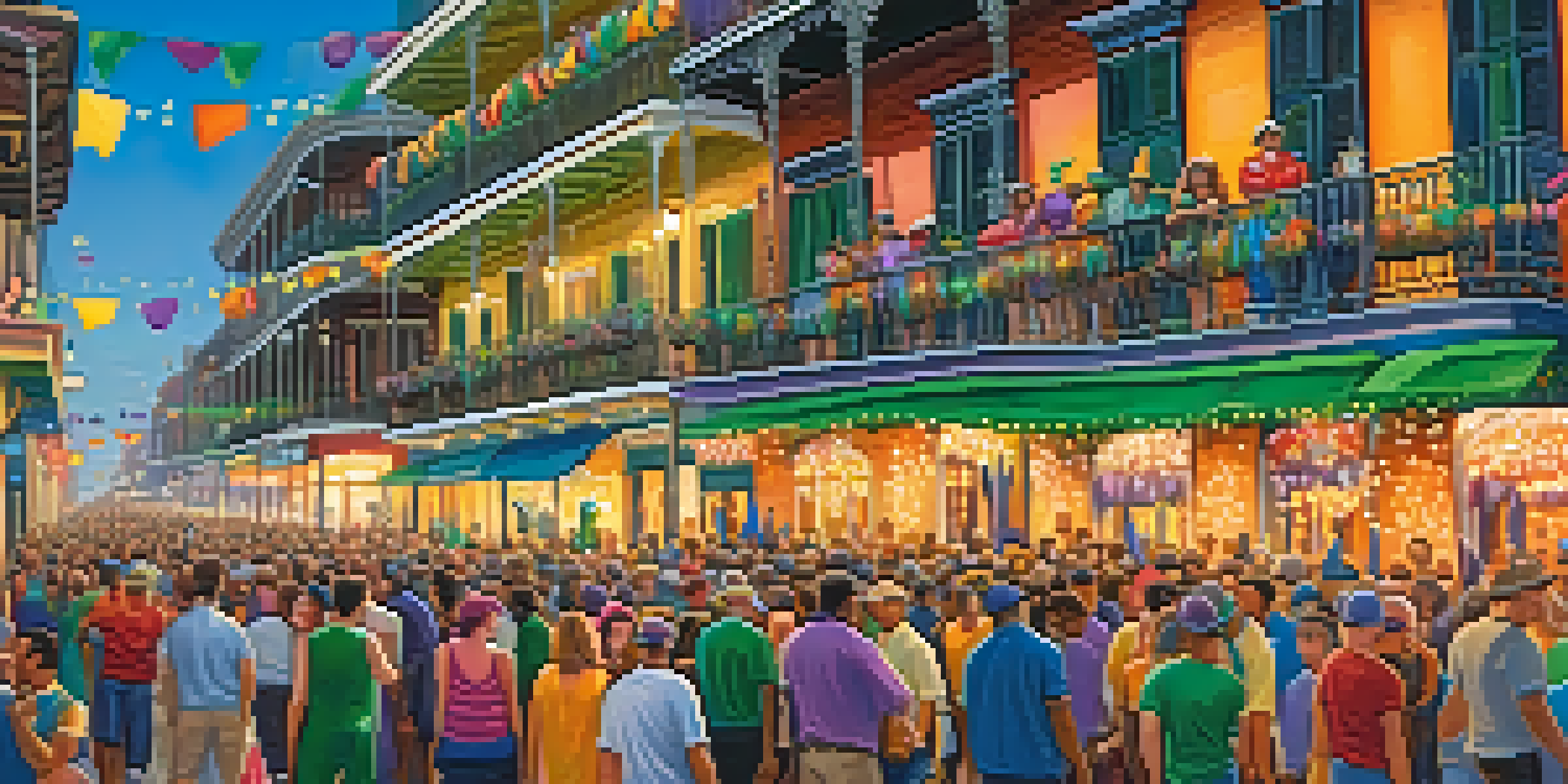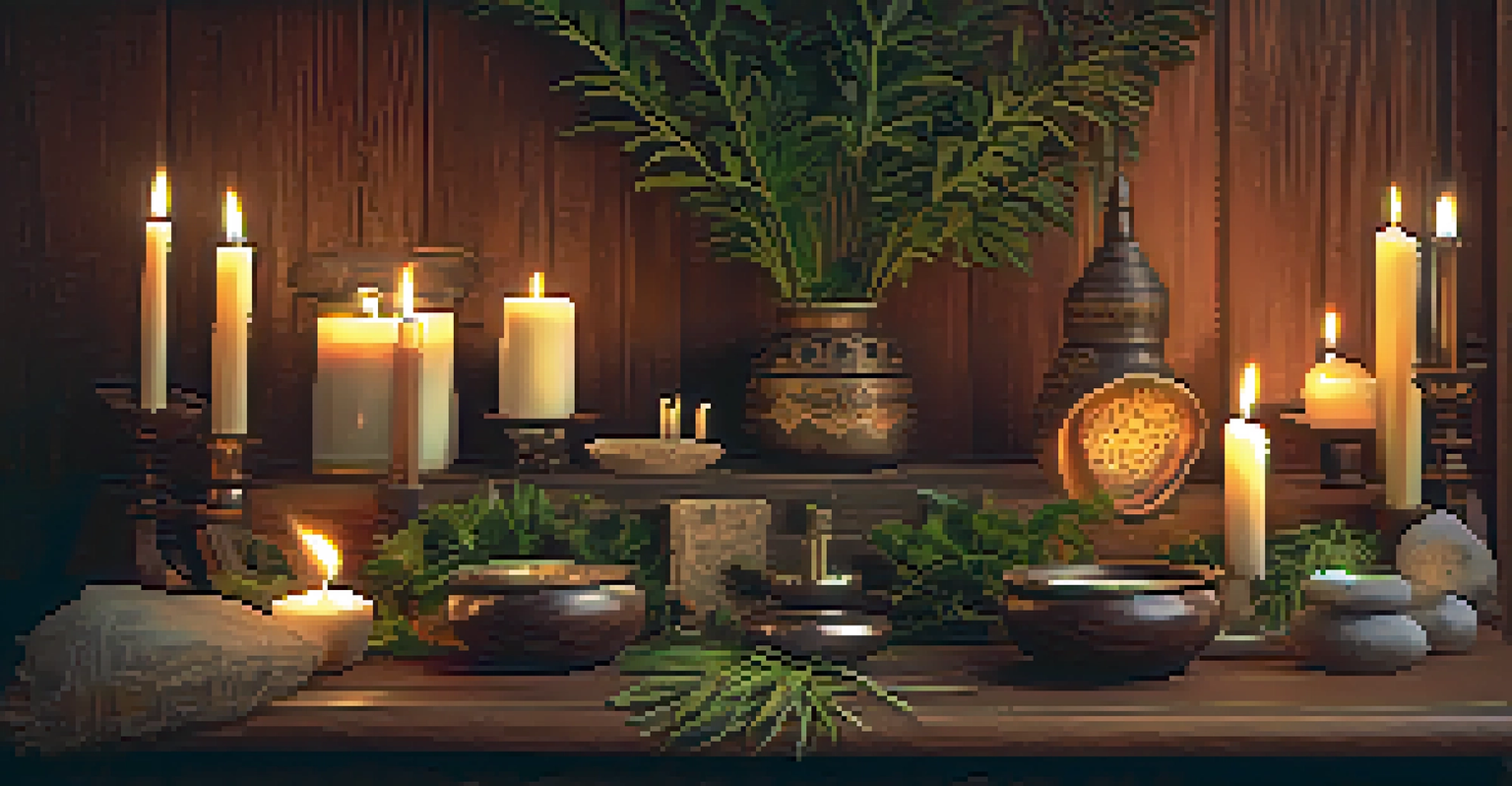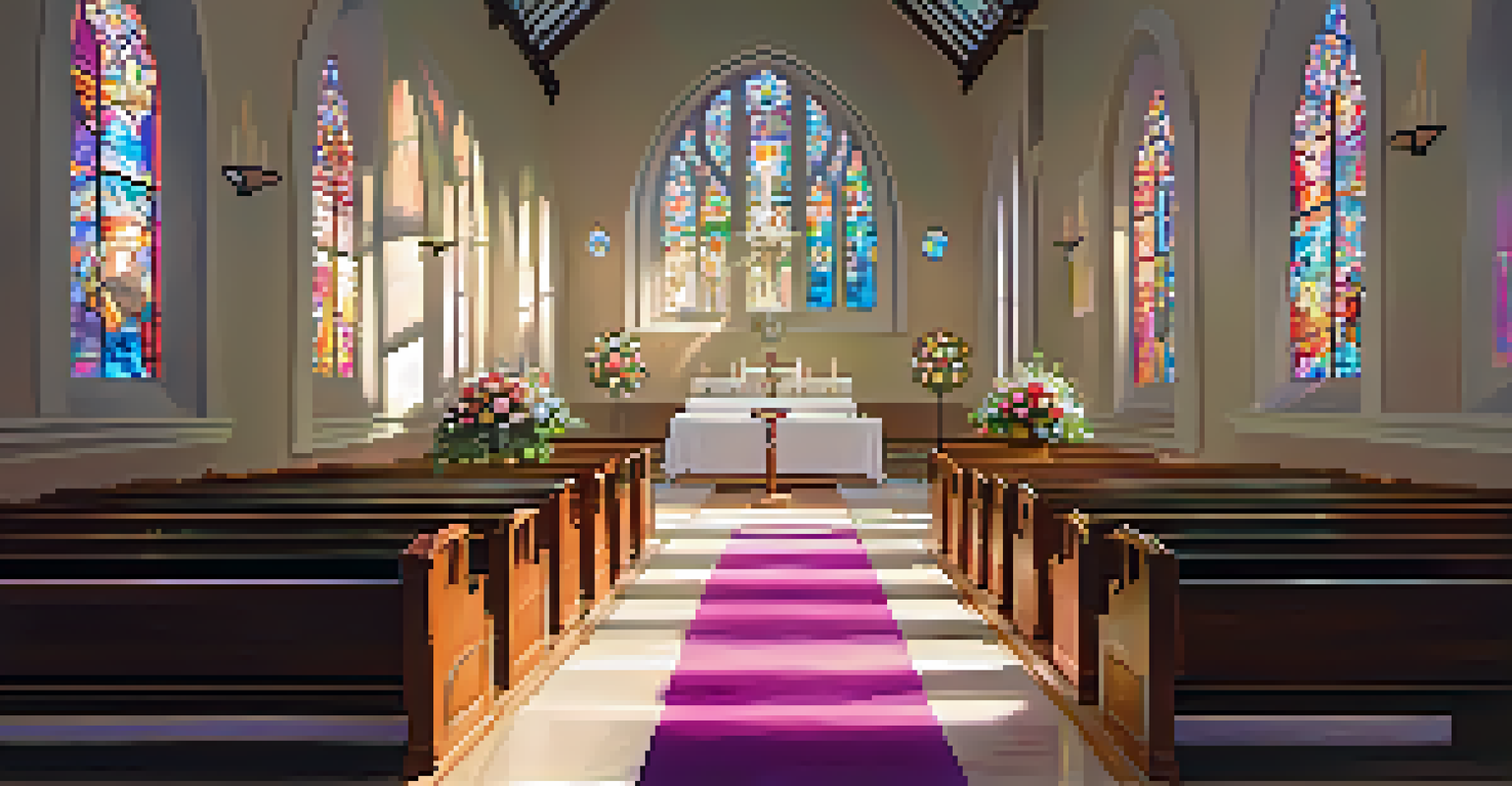The Role of Religion in Shaping Louisiana's History

Early Religious Foundations in Louisiana's Colonization
When European settlers arrived in Louisiana, they brought their religious beliefs with them. Catholicism, in particular, played a pivotal role as the French established colonies in the region. This early influence set a religious tone that would permeate the culture and society of Louisiana for centuries to come.
Religion is not a thing of the past; it is a vital force that shapes our present and future.
The Jesuits and other religious orders were instrumental in establishing missions and schools, helping to convert Native Americans and educate the settlers. These missions not only served spiritual purposes but also acted as cultural bridges between diverse groups. As settlers and indigenous peoples interacted, a unique blend of beliefs began to emerge.
As Louisiana transitioned from French to Spanish control, the Catholic Church continued to be a dominant force. The influx of different cultures, including Spanish and Creole, further enriched the religious landscape, creating a tapestry of beliefs that would shape the state’s identity.
The Role of Voodoo in Louisiana Culture
Voodoo, often misunderstood, is a significant aspect of Louisiana's cultural heritage. Originating from African spiritual practices, it was shaped by the experiences of enslaved people who sought to maintain their traditions amidst oppression. Voodoo became a form of resistance and resilience, deeply rooted in the community.

In New Orleans, Voodoo blended with Catholicism and other cultural elements, creating a unique religious practice. This fusion illustrates how religions can evolve and adapt, reflecting the diverse influences in Louisiana. Voodoo's rituals and beliefs have become iconic, drawing visitors intrigued by its mystique.
Religious Diversity Shapes Louisiana
The blend of Catholicism, Voodoo, and Protestantism creates a rich tapestry of religious beliefs that define the state's culture and identity.
Despite its popularity, Voodoo has faced stigma and misunderstanding, often portrayed in sensationalized ways. However, its significance in Louisiana's history underscores the importance of recognizing and respecting diverse religious practices as integral to the state's identity.
Catholicism’s Enduring Influence in Louisiana
Catholicism remains a cornerstone of Louisiana's identity, particularly in areas like New Orleans. The state hosts numerous churches, festivals, and traditions that reflect its Catholic heritage. Events like Mardi Gras showcase the vibrant celebration of faith intertwined with local culture.
The intersection of faith and culture is where the true spirit of a community is found.
The Catholic Church has historically played a role in education and social services, establishing schools and charitable organizations. This commitment to community service shows how religion can foster a sense of belonging and support in times of need. Many families in Louisiana still uphold Catholic traditions, passing them down through generations.
Moreover, the church has been a source of strength during times of adversity, providing guidance and solace to communities facing challenges. This enduring influence highlights how Catholicism has not only shaped individual lives but also the collective identity of Louisiana.
Protestantism and Its Impact on Southern Louisiana
Protestantism has also played a significant role in Louisiana's religious landscape, particularly in the northern regions. As different denominations established congregations, they contributed to the state's spiritual diversity. This expansion of religious options allowed individuals to explore their faith in various ways.
The growth of Protestant churches often coincided with social movements, such as the Civil Rights Movement. Many congregations became involved in advocating for social justice, showcasing how faith can intersect with activism. This involvement has led to a rich tradition of community engagement that continues to this day.
Festivals Reflect Cultural Heritage
Louisiana's vibrant festivals, such as Mardi Gras, celebrate the intertwining of religious traditions and local culture, fostering community unity.
Protestant festivals and gatherings, like revivals, have fostered a sense of community and belonging. These events not only celebrate faith but also promote local culture, illustrating how religion can serve as a unifying force in diverse communities.
The Intersection of Religion and Politics in Louisiana
Religion has often intersected with politics in Louisiana, influencing legislation and public policy. The state's unique blend of religious beliefs can affect voting patterns and civic engagement. Issues such as education, social services, and moral values are often framed within a religious context.
For instance, debates over education often involve discussions about the role of religious teachings in schools. The rise of charter schools and the push for school choice reflect the desire of some communities to incorporate religious values into education. This highlights how religion can shape public discourse and policy decisions.
Furthermore, religious leaders frequently play a role in community organizing and advocacy. They can mobilize their congregations around various issues, from environmental justice to healthcare access, using their platforms to promote change. This blending of faith and politics showcases the powerful influence of religion in shaping Louisiana's societal landscape.
Festivals and Celebrations Reflecting Religious Heritage
Louisiana is renowned for its vibrant festivals, many of which are deeply rooted in religious traditions. Events like Mardi Gras and St. Joseph's Day reflect the state's unique blend of Catholic and Creole influences. These celebrations not only honor religious beliefs but also showcase the cultural diversity that defines Louisiana.
The blending of cultures during these festivals creates a sense of unity among residents. Participants share in food, music, and traditions that have been passed down through generations. This communal aspect reinforces the idea that religion and culture are intertwined, shaping the identity of the state.
Modern Challenges for Faith Communities
As secularism rises, religious groups in Louisiana are adapting to engage with younger generations while maintaining core values.
In addition to major festivals, local celebrations often feature religious elements, such as blessings and processions. These events serve as a reminder of the enduring significance of faith in everyday life, fostering a sense of belonging and community spirit among participants.
Modern Challenges and the Future of Religion in Louisiana
As Louisiana evolves, so too do the challenges faced by its religious communities. Issues such as declining church attendance and the rise of secularism pose questions about the future of faith in the state. However, many religious groups are adapting, finding new ways to engage with younger generations.
Social media and technology have opened new avenues for outreach, allowing religious leaders to connect with individuals in innovative ways. This adaptability reflects a broader trend of how faith can evolve while maintaining its core values. The challenge lies in balancing tradition with contemporary needs and interests.

Moreover, interfaith dialogue is becoming increasingly important in a diverse society. By fostering understanding and cooperation among different religious groups, Louisiana can continue to celebrate its rich spiritual heritage while addressing modern challenges. This collaborative approach may pave the way for a more inclusive future.